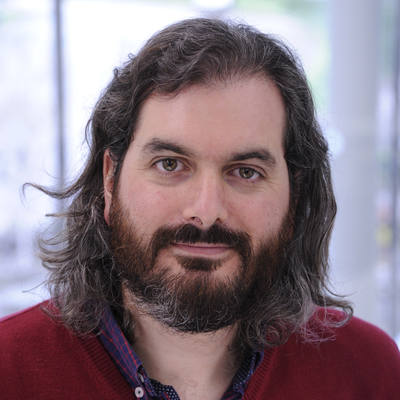
Alumni
This person is a member of Sanger Institute Alumni.
I am interested in understanding how parasites, in particular parasitic flatworms, infect, evade the immune response and establish an effective infection that allows them to survive for decades inside the hosts. Many of these parasites, responsible for the infection of hundred millions of people in the most impoverish regions of the world, are considered agents of Neglected Tropical Diseases by the WHO.
In particular, my interest in host-parasite interaction has been focused in the development of genetic approaches to manipulate the genome and/ or the expression of genes in order to elucidate gene function and reveal parasite vulnerabilities that would eventually lead to the development of novel control strategies by identifying targets for drugs and/ or vaccines.
We are currently applying novel approaches to manipulate the genome of these parasites, including transgenesis mediated by lentivirus and CRISPR-Cas in tandem with improved culture conditions of developmental stages, highthroughput transcriptomic analysis and single-cell sequencing.
My colleagues and I have undertaken extensive research during the past decade aimed at functional genomics of trematodes including blood flukes (schistosomes) and the liver flukes Fasciola hepatica and Opisthorchis viverrini. We have extensive experience with in vitro/ ex vivo culture of these pathogens, methods and approaches to transduce cultured schistosomes with retro/ lentivirus and other genome integration competent vectors including transposons, and mouse models for schistosomiasis mansoni and haematobia. I have been centrally involved in the development of gene silencing mediated by dsRNA (RNAi) in F. hepatica, and germ line transgenesis aiming to derive stable lines of schistosomes expressing reporters and/ or hairpin RNAs to drive vector-based RNAi.
I am also interest in the relationship between infection and cancer, more specifically between chronic infections with helminth parasites and carcinogenesis. Colleagues and I have been involved in studies aiming to understand the role of the blood fluke Schistosoma haematobium in the genesis and progression of squamous cell carcinoma of the bladder, and the liver fluke Opisthorchis viverrini in cholangiocarcinoma (bile duct cancer).
More recently colleagues and I started to explore how helminth infections may affect the gut microbiome of the host. In particular, we have characterized quantitatively and qualitatively the fluctuations in the composition of the gut microbiome of mice experimentally infected with Schistosoma mansoni with the main goal of identifying microbial taxa with potential roles in the immune modulation and pathophysiology of the infection and disease progression.
My timeline
Joined Matt Berriman Group, Parasite Genomics, as Senior Staff Scientist, at the Wellcome Sanger Institute, Wellcome Genome Campus, Hinxton, UK
Research Assistant Professor. Department of Immunology, Microbiology and Tropical Medicine, School of Medicine and Health Sciences, The George Washington University. Washington DC, USA
Graduated from School of Science with Doctor of Philosophy (PhD) degree in Molecular and Cell Biology, University of the Republic, Uruguay
Began PosDoc with Dr. Paul Brindley, Department of Immunology, Microbiology and Tropical Medicine, School of Medicine and Health Sciences, The George Washington University, Washington DC, USA
Graduated from School of Science with Master in Science (MSc) degree in Molecular and Cell Biology, University of the Republic, Uruguay
Assistant Professor in Genetics, Department of Genetics, School of Medicine, University of the Republic, Uruguay
Graduated from School of Medicine with Medical Doctor (MD) degree, University of the Republic, Uruguay